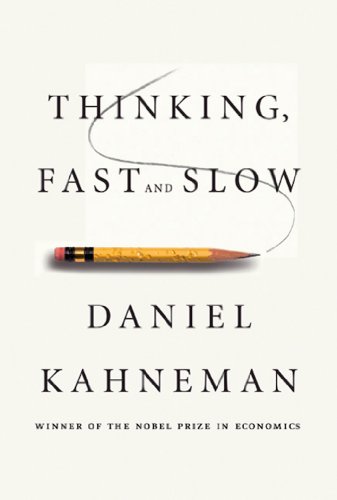

This article is an excerpt from the Shortform summary of "Thinking, Fast and Slow" by Daniel Kahneman. Shortform has the world's best summaries of books you should be reading.
Like this article? Sign up for a free trial here .
What is the focusing illusion? How does it affect your memory of an event?
The focusing illusion is a cognitive bias that happens when you focus too much on one aspect of an experience. This keeps you from holding an accurate memory of the experience as a whole and leads to bad predictions about future experiences.
We’ll cover what the focusing illusion is, how it affects what we predict will make us happy, and how to counter it.
Focusing Illusion
The focusing illusion is related to overall life satisfaction. Considering overall life satisfaction is a difficult System 2 question. When considering life satisfaction, it’s difficult to consider all the factors in your life, weigh those factors accurately, then score your factors.
As is typical, System 1 substitutes the answer to an easier question, such as “what is my mood right now?”, focusing on significant events (both achievements and failures), or recurrent concerns (like illness). This is the focusing illusion.
The key point of the focusing illusion: Nothing in life is as important as you think it is when you are thinking about it. Your mood is largely determined by what you attend to. You get pleasure/displeasure from something when you think about it.
Focusing Illusion Example
For example, even though Northerners despise their weather and Californians enjoy theirs, in research studies, climate makes no difference in life satisfaction.
Why is this? When people are asked about life satisfaction, climate is just a small factor in the overall question. You tend to think much more about your love life, your career, your family and friends, and the bills you need to pay. Climate is likely a distant concern.
However, when you consider the question, “are Californians more satisfied with life than Northerners because of the weather,” climate becomes a focal point. This leads to the focusing illusion. You overweight the climate factor in the life satisfaction question; you conjure the available image of hiking, rather than the reality that lives are similar throughout; you overestimate how often Californians think about the weather when asked about a global evaluation.
Consequences of the Focusing Illusion
This idea of the focusing illusion leads to a number of counter-intuitive results:
- Consider the question: “how much pleasure do you get from your car?” Now a different question: “when do you get pleasure from your car?”
- The answer to the second question is when you think about it—which is not often, including when you’re driving it.
- However, to answer the broader first question, you substituted the easier, narrower question: “how much pleasure do you get from your car when you do think about it?”
- Chronic stressors cause more dissatisfaction than you would predict. This includes chronic pain, chronic loud noise, and depression. By being ever-present, these stressors constantly bring the problem into central focus.
- Certain activities that engage you—like social activities—retain your focus and give you more.
The Focusing Illusion and Mispredictions of Happiness
The focusing illusion leads to mispredictions of happiness, for ourselves and others.
When you forecast your own future happiness, you overestimate the effect a change will have on you (like getting a promotion), because you overestimate how salient the thought will be in future you’s mind. In reality, future you has gotten used to the new environment and now has other problems to worry about. This is an example of the focusing illusion.
You may pay significant amounts for improvements in life satisfaction, even though it has no effect on experienced happiness.
- Colostomy patients show no difference in experienced happiness compared to healthy people. Yet they would trade away years of life for no longer having a colostomy.
- The remembering self has a focusing illusion about life that the experiencing self endures comfortably.
However, when you predict the happiness of others, you focus on the aspects of their experience that are most salient to you. You ignore that the person may have habituated to her circumstances, or that the aspect has counterbalancing benefits or drawbacks.
- If you’re preoccupied with lacking money, you predict wealthier people are happier than they are, even though they’ve adjusted to wealth and are likely no happier than you are.
- People predict paraplegics have a higher U-index than they really do. After adjustment, paraplegics stop thinking about their condition. They enjoy friends and get mad about politics, just like you.
Adaptation to a new situation consists in large part of thinking less and less about it.
Antidotes to the Focusing Illusion
(Shortform note: the following are our additions and not explicitly described in the book.)
- To evaluate your life satisfaction, create a life rubric, where you list the factors and their weightings, then score each of the factors. This might make you happier and grateful for what you have, rather than focusing on single sore points that stick out.
- Choose to spend time on pleasurable activities that will engage your focus. You pay little attention to the TV as you passively watch, but you retain focus in social interaction or playing team sports.
- Reflect on your past experiences to inform future ones—how much did buying something in the past make you happier today? What activity are you really thankful to your past self for doing? Do more of what you appreciate your past self for having done.
The focusing illusion is a fixable cognitive bias.
———End of Preview———

Like what you just read? Read the rest of the world's best summary of "Thinking, Fast and Slow" at Shortform . Learn the book's critical concepts in 20 minutes or less .
Here's what you'll find in our full Thinking, Fast and Slow summary :
- Why we get easily fooled when we're stressed and preoccupied
- Why we tend to overestimate the likelihood of good things happening (like the lottery)
- How to protect yourself from making bad decisions and from scam artists







I am really enjoying this shortform..